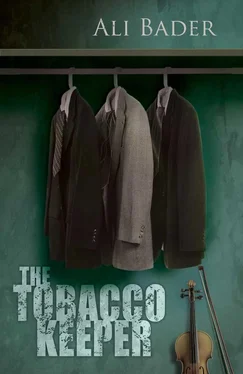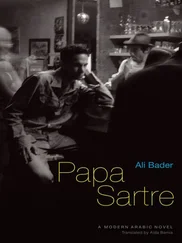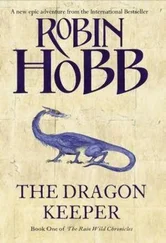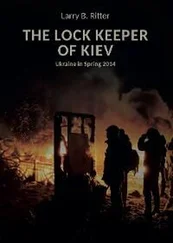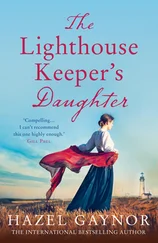Yousef’s grandfather, Saleh, sold sesame paste at a shop on the left-hand side of Al-Rashid Street near Al-Murjaneya School. In that area, known as Al-Shurja market, were several oilseed presses owned by Jews. He then worked for a time pruning palm trees at the Mamou date grove. In the interwar period, he started brokering the date trade between merchants from Basra and Baghdad. Saleh’s brother, Rabbi Shmuel Qujman, was the author of Judaism and Life , which was printed at the Shuhait Press and which later appeared in Hebrew in the thirties. Yousef never forgot his grandfather’s house. In fact, for many years, he continued to remember the warmth of his grandfather’s hand, which he’d held so tightly for fear of losing him in the crowd as they walked along Al-Rashid Street. He remembered the pungent smell of mothballs from the cupboard in which his grandfather hung his suits and the black caps that Baghdadis traditionally wore. His grandmother’s carefully painted face and her sad, black clothes instilled fear in his heart. In her high-ceilinged room, she would maintain her silence. Her debilitating illness imposed a silence on the whole family. In his letters to Farida, Yousef never forgot her wrinkled, white face. In a letter dated 1954 he wrote that he would go into her room in the company of his mother. While his mother cleaned the room with a feather duster, his grandmother would keep her eyes shut as if she were dead.
Despite their poverty, his was an educated Baghdadi family, which had been hit by the post-World War II slump. All the members of the family used to read books, newspapers and magazines. Their small house was full of manuscripts and huge tomes. In one of his letters, Yousef said that books were everywhere: between drawers, on walls, beneath the stone banisters and even in the large rooms with their decorated ceilings. This was a source of humour and laughter among the Jewish families that had made their fortunes from business after the establishment of the Iraqi state in the twenties and thirties. However, this family grew ever poorer and had to sell the house. Nothing remained of their old wealth except Kashani rugs and Persian cutlery.
Throughout her life, his mother, Huri bint Rahamin Dalal, was plagued by a vague but deep anxiety. At the turn of the twentieth century she had studied at the school for girls run by Madame Danon. As a seamstress in the workshop at the Laura Khedouri Club she had acquired a reputation for embroidering pillows using gold and silver thread. In the thirties King Faisal I had paid tribute to her when he visited the club. Her family was proud of the fact that long ago the famous Turkish traveller Olia Djalabi had once stayed at their house on a visit to Baghdad. Not only had he enjoyed their hospitality for a long period, but he had also eaten from their tebit meal, which Jews customarily made on the Sabbath.
In a letter dating from his first trip to Iran in the fifties, Yousef gave a vivid portrait of his mother. She was like a frail chrysalis, always seeking solitude, for she had lost any joy in her work. Her naive smile, her quiet, pleading movements and her general weakness made her a complex mixture of the superficial and the tragic. On the large sofa in the small living room that was filled with colourful rugs she would sit quietly and peacefully, holding her needles and embroidering a satin pillow. The colourful woollen yarns rolled beneath her feet where little Yousef sat, overwhelmed by her silence and grief. He would try out some tunes on his violin, especially after taking lessons with Aram Garabian, the famous Armenian violinist in Baghdad. And as soon as the melody rang out in the living room of that little house, his mother would listen, as calmly and as silently as a statue.
The single photograph of Yousef’s mother, which was included by Farida in the envelope handed to me by Boris Naumkin at the agency, showed the woman’s personality clearly.
She was of average beauty, with fine features and very thin. Her beautiful eyes were covered by a film of translucent sorrow. She was in her thirties and wore small, round glasses. She was modestly dressed and stood beside her husband, Sami. He was a thin, tall man who towered above her in his old-fashioned check suit. His white shirt was ironed and his tie was as narrow as a piece of string. He had a long nose and a high forehead.
On the back of the photograph was written: ‘Sami Saleh and wife, 1942. Photograph by Hajj Amri Salim at Ibrahim Twaiq’s home.’
This photograph, as well as the letters written by Yousef to Farida and the testimony of Yousef’s friends such as Kakeh Hameh, gave me a vivid picture of what Yousef would become in the future. I was able to refer not only to this important picture, which I kept with me for such a long time that I knew its details by heart; there were also the other pictures that interested me before I started on my journey. If I were to mention just one of them, it would be the only photograph I know of that depicts a group of Baghdad communists in the forties. It was a very rare photo with tattered edges and dated 3 August 1946 on the back. It showed Victor Menasha Yousef sipping a cup of coffee, Saida Sassoon looking cheerful, Zanoun Ayoub in short sleeves revealing his famous muscles and Sami Saleh, Yousef’s father, standing tall and very thin, and staring with deep eyes into the unknown. They were all gathered in the living room of Victor Menasha’s house and in the background one could see the arches of the house and its internal columns. There were also two pinewood columns by the wall.
The photograph showed very clearly the father in his youth. As a young man, Sami looked very much like his son was to become. His posture and self-confidence revealed his firmness and his ability to gather his strength before forging ahead. The picture also communicated to me his profound faith and how much he’d struggled to free his soul of all the harmful weeds that had threatened to choke it. His was a heart that tilled and sowed the void, in total ignorance of its destiny. Yousef referred to this in one of the important letters he’d written from Tehran, where he’d talked with great enthusiasm about his father, describing him as a role model who had held fast to his belief in human justice. Yousef even stated clearly that throughout his life he’d never met a man as principled as his father. So what was the father like?
Yousef was woken by his father’s quiet, hoarse voice. He rubbed his eyes with his hands, blinked a few times to clear his vision, and saw his father standing by the window, his hair a little dishevelled, his collar turned upwards and his gaze unwavering. After a short silence, Yousef’s father put on his hat, picked up his cane and went quietly out of the door. Yousef felt certain that everybody knew who Sami Saleh was: teachers in their old pressed clothes, rubbish collectors, painters, builders, waiters in cafés, prostitutes, drummers at the local café, the mayor, the policeman and the greengrocers.
Almost every afternoon, according to everyone we met, Sami Saleh would head home from his work at the Juri pharmacy and start his long walk through the streets of the Al-Torah quarter, around Hanoun Market or through Mamou grove. He would walk beneath the colonnades of Al-Rashid Street, a tall man with a dark face and a pointed chin. He had clear, penetrating, dark eyes that he’d probably inherited from his grandfather, the great rabbi, who’d left his mark on the whole family, who were still living in the old quarters of Baghdad.
Sami Saleh was lost in thought as he walked in front of the clothes shops. He passed quietly in front of the spice merchants in Al-Shurja market and in front of the shops that sold round boxes of sweets. He was constantly assailed by mysterious doubts. He would sniff the smell of the soil in the gardens, or pick up a piece of plaster and crush it between his fingers. He would always walk with his head held high, contemplating passers-by from above, his narrow eyes examining them as though they were little worms in a bright yellow field. He walked alone in his long, black coat, his large shoes, his wide creased hat and his glasses that were missing a lens.
Читать дальше
